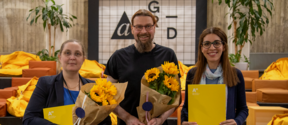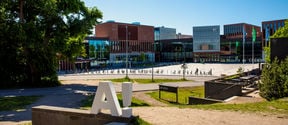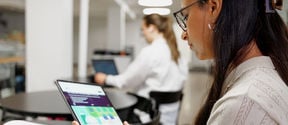Developing individualised biomaterials for medical treatment
New types of biological mesh can also be used in treating gynaecological prolapses, hernias and urinary incontinence.
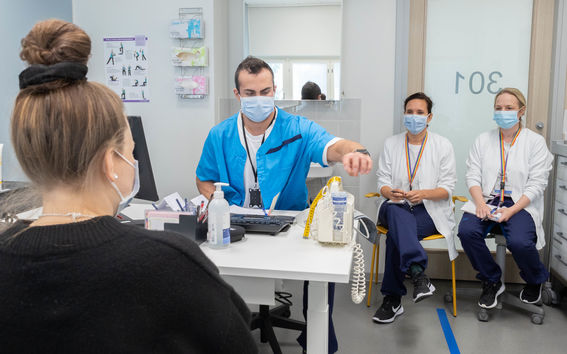
The birth of Finnish maternity and child health clinics, called “neuvola” in Finnish, was marked by the establishment of a clinic for young children in Kallio, Helsinki, in 1922. Today, clinics reach 99.7% of Finnish families expecting a child and 99.6% of families with a small child. Researchers are now exploring how to meet the needs of the next century of maternity and child health clinics using Biodesign methods from Stanford University.
Eija Raussi-Lehto, a senior lecturer with decades of experience in health and maternity care, will defend her doctoral thesis on the development of the maternity and child health clinic system at Aalto University on 7 October. She calls for courage to develop the clinics.
‘We should conduct multidisciplinary experiments and look at things from new perspectives. There is a need for coherence and continuity in systems, care pathways and quality measurement. The current system does not guarantee a consistent level of care for clients. Moreover, when each unit only develops its own activities, it can in the worst case overburden the next unit. In the future of the clinic, systems will need to communicate better with each other,’ Raussi-Lehto says.
Raussi-Lehto's doctoral thesis is a monograph, in which she also takes a stand on resources in the clinics and the need to change training guidelines for the clinic staff.
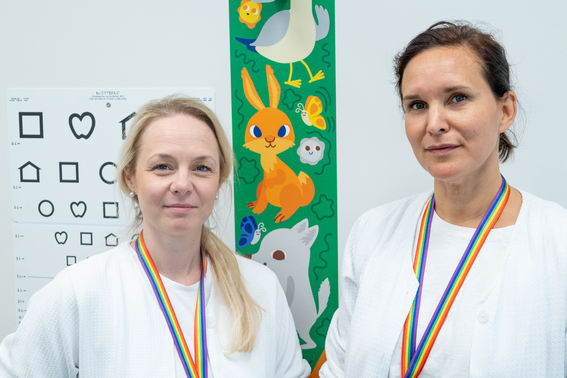
Annika Järvelin and Hanna Castrén-Niemi, innovation Fellows in the Biodesign programme, have spent three weeks at three different clinics in Helsinki. The programme involves a multidisciplinary team going into the healthcare environment to identify unmet needs and develop innovative solutions to address them.
According to Järvelin and Castrén-Niemi, the new “family centre” model for maternity and child health clinics offers, in principle, more resources to support families than before. In practice, however, the family may not meet familiar nurses or doctors, and the staff members may not even know each other because of high employee turnover.
Raussi-Lehto calls for even stronger continuity from pregnancy to birth and up to the puerperium.
‘Teamwork based on the best possible expertise is one way of ensuring this, so that at least one of the team members is familiar to the family,’ says Raussi-Lehto.
During the immersion, Järvelin and Castrén-Niemi have turned their attention to the role of the spouse and family diversity at the clinic.
‘The whole family should be more involved in the activities of the clinic. Spouses could be taken into account at the clinic better than now, even though both parents are often present at clinic visits,’ says Järvelin.
‘Family diversity could be considered by offering additional support in a more targeted way to families or family members in need,’ says Castrén-Niemi.
‘Multicultural issues and language support have already been strongly present in our findings. Almost a third of the families we have met have been non-Finnish speaking´, says Järvelin.
Järvelin and Castrén-Niemi have already made more than 400 observations. Most important needs will be selected for further solution development by the innovation fellows. Other needs will be taken to the management of maternity and child health clinic. Järvelin and Castrén-Niemi are also interested in the potential of digitalisation of clinics. According to the 2021 survey, the electronic services provided by the clinic are the ones that most need improvement.
‘For example, first antenatal visits in Helsinki are offered to clients either as traditional appointments or as video visits. Digital communication is already possible via Maisa, but in the future, digital communication is expected to become more personal," says Heidi Långrstöm-Karhapää, senior nurse at the City of Helsinki's child health clinic.
The Biodesign Finland innovation programme is a collaboration between Aalto University, the University of Helsinki, Metropolia University of Applied Sciences and Helsinki University Hospital. Järvelin and Castrén-Niemi are observing the childcare environment in collaboration with the City of Helsinki and the project is partly funded by its Innovation Fund.
Raussi-Lehto is also developing a gynaecological prolapse mesh and a method also for the treatment of urinary incontinence, together with Project Manager Jani Kuula. Patients are usually older women who have had more than once child. This project originated from observations made during the immersion phase of the Biodesign Finland project at the HUS Women's Hospital.
Further information:
Annika Järvelin
Innovation Fellow at Biodesign Finland and Aalto University
[email protected]
Hanna Castrén-Niemi
Innovation Fellow at Biodesign Finland and University of Helsinki
[email protected]
Eija Raussi-Lehto
Senior lecturer, Metropolia UAS, Doctoral candidate, Aalto University
[email protected], [email protected]
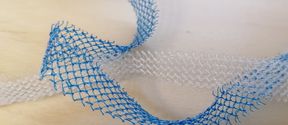
New types of biological mesh can also be used in treating gynaecological prolapses, hernias and urinary incontinence.
